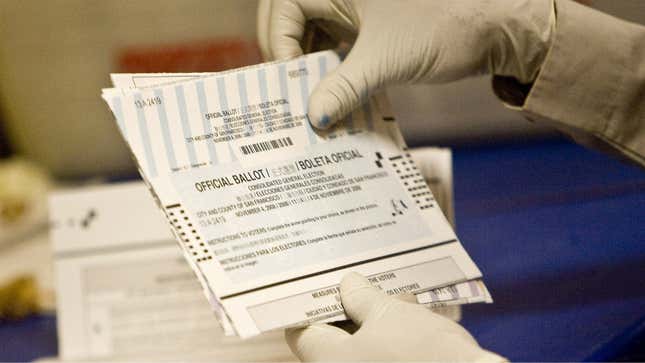
On a chilly morning last month in São Paulo, a woman from Missouri sat down next to me and asked : “Do these votes really count?”
She was referring to overseas votes in general but also specifically to her vote since I was helping her to register to vote from abroad. I had flown in from Rio de Janeiro to do a major non-partisan voter registration drive for Democrats Abroad Brazil in one of the most important international schools in São Paulo. The school is a veritable haven of American and other foreign nationals—loaded with American faculty, students and parents.
At the end of the day, we had registered about 100 Americans to vote in the upcoming 2012 elections.
This is how I answered the woman from Missouri: In 2008, Al Franken became senator of Minnesota due to overseas ballots. He beat his Republican opponent by about 300 votes. How important was that? Well, Al Franken’s victory gave President Obama a filibuster-proof Senate. This, in turn, enabled passage of the Affordable Care Act, the most sweeping piece of domestic legislation since the 1960’s—the first major reform of the US health care system in 100 years.
Regardless of political affiliation, this is a pretty powerful argument for the vote, and one many people lose sight of in their doubts about the political process. It is an argument that I have made to people around Brazil as I have worked to seek out Americans in the country and get them registered to vote.
By using various means—Facebook and other social media, events such as the one at the school, happy hours, as well as local media outreach—my organization has managed to register several hundreds of Americans directly, and many more indirectly.
As the world becomes much more interconnected, and the flow of people intensifies between countries, overseas voting is gaining in importance with each election. According to Caitlin Kraft Buchman, of the Democratic National Committee’s Women’s Caucus Board, more than 6 million Americans live overseas. This includes roughly more than 205,000 military personnel and a whopping 270,600 plus students abroad. The overseas community forms a virtual state which would be the 18th largest in the US if it were an actual territory.
I have observed this in Brazil firsthand. A recent estimate by the president of American Society in São Paulo placed the number of Americans in Brazil at roughly 5,000. It is really difficult to pinpoint the number precisely, because the influx of Americans and other foreigners into Brazil seems to grow exponentially by the day. Through my work with the international community here in Rio, I come in contact with brand new arrivals every week. Brazil is being flooded by every kind of American possible: students, recent college graduates looking to start up companies and work in IT, engineers and managers in the booming oil, mining and construction sectors, investors in tourism, consultants—they’re all coming here.
The vote is a choice which results in action, which in turn dramatically affects daily life. And in an organic, intensely interconnected world, politics is no longer local. A vote for a US president has profound worldwide impact in terms of economic and foreign policy.
While we watch the first presidential debate on Oct. 3 in Rio, I hope that we are joined, virtually, by those 6 million plus of the American overseas community, engaging, registering and voting.